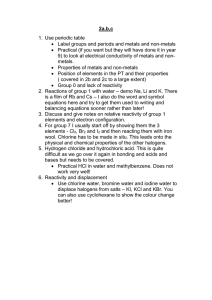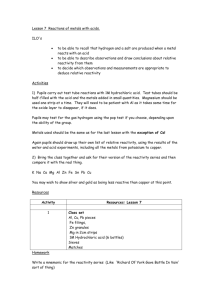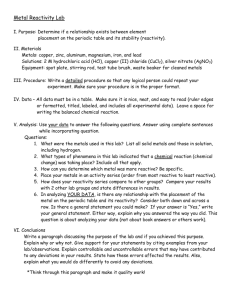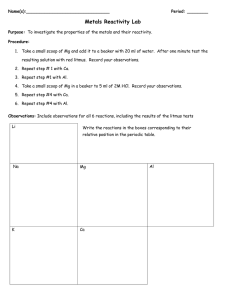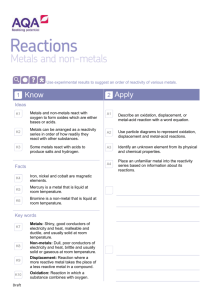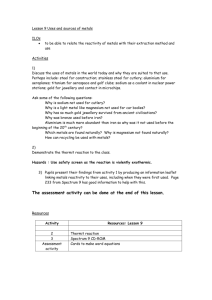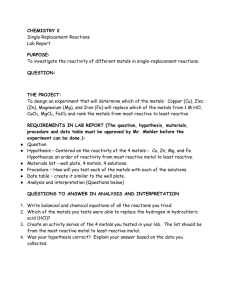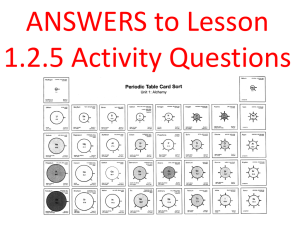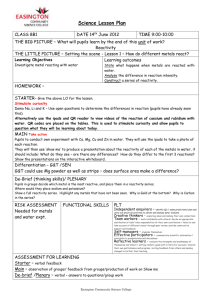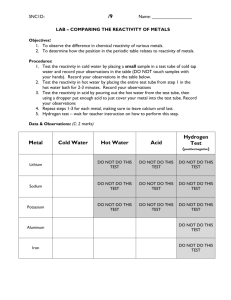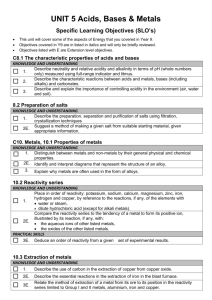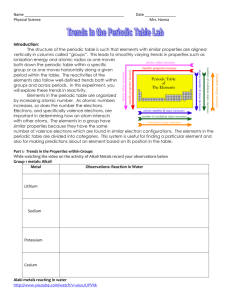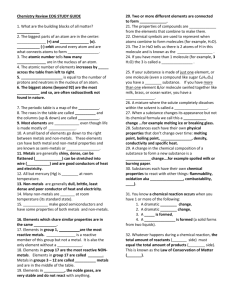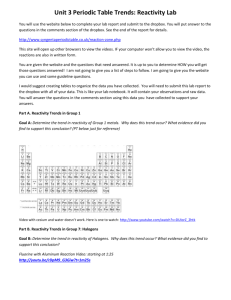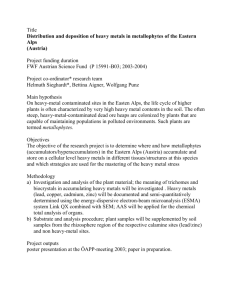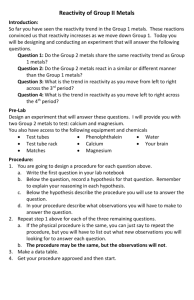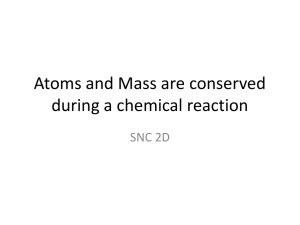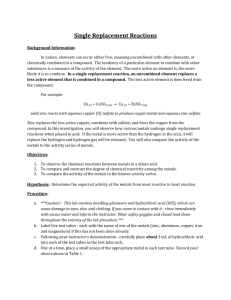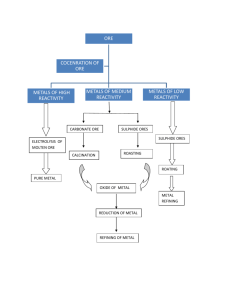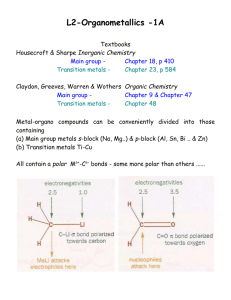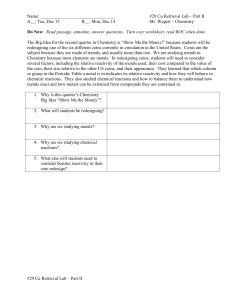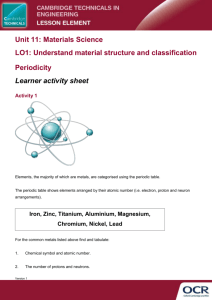(Subject) Schemes of Learning Year …9 Progression Route: Science
advertisement
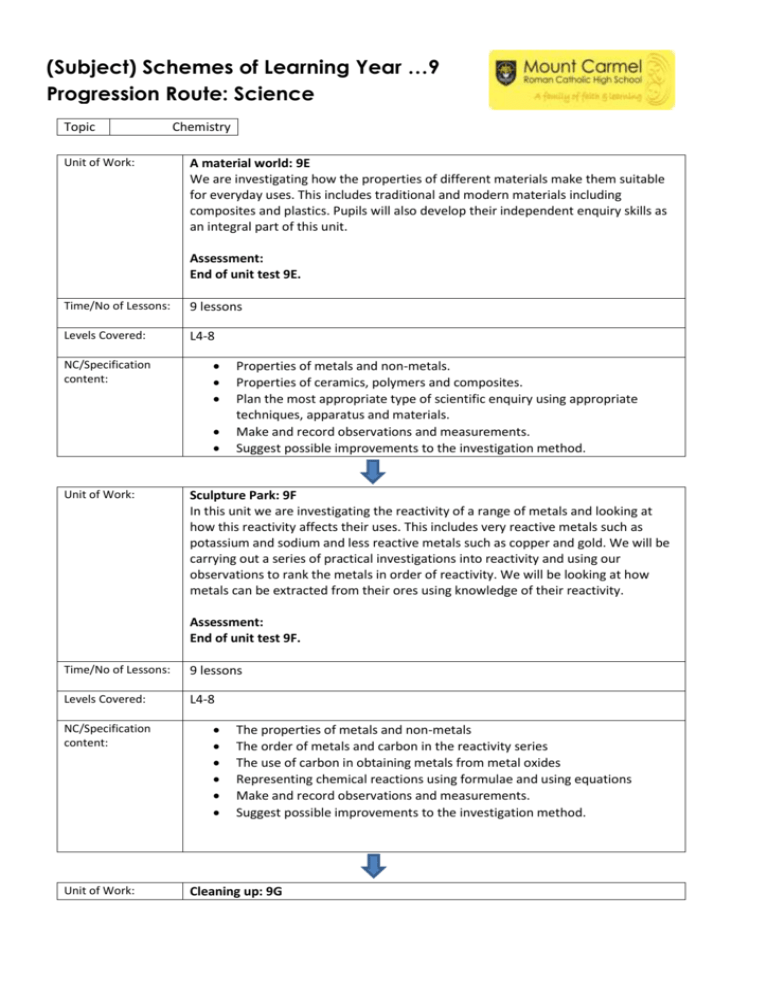
(Subject) Schemes of Learning Year …9 Progression Route: Science Topic Unit of Work: Chemistry A material world: 9E We are investigating how the properties of different materials make them suitable for everyday uses. This includes traditional and modern materials including composites and plastics. Pupils will also develop their independent enquiry skills as an integral part of this unit. Assessment: End of unit test 9E. Time/No of Lessons: 9 lessons Levels Covered: L4-8 NC/Specification content: Unit of Work: Properties of metals and non-metals. Properties of ceramics, polymers and composites. Plan the most appropriate type of scientific enquiry using appropriate techniques, apparatus and materials. Make and record observations and measurements. Suggest possible improvements to the investigation method. Sculpture Park: 9F In this unit we are investigating the reactivity of a range of metals and looking at how this reactivity affects their uses. This includes very reactive metals such as potassium and sodium and less reactive metals such as copper and gold. We will be carrying out a series of practical investigations into reactivity and using our observations to rank the metals in order of reactivity. We will be looking at how metals can be extracted from their ores using knowledge of their reactivity. Assessment: End of unit test 9F. Time/No of Lessons: 9 lessons Levels Covered: L4-8 NC/Specification content: Unit of Work: The properties of metals and non-metals The order of metals and carbon in the reactivity series The use of carbon in obtaining metals from metal oxides Representing chemical reactions using formulae and using equations Make and record observations and measurements. Suggest possible improvements to the investigation method. Cleaning up: 9G In this unit we will be investigating the effects of human activity on the atmosphere of the earth and how this can have a detrimental effect on the environment around us. We will be looking at the earth’s atmosphere in the past and how it has changed over time. We will be looking at data about climate change and making predictions about the future based on this data. We will also be looking at ways in which people can reduce their impact on the environment. Assessment: End of unit test 9G. Time/No of Lessons: 9 lessons Levels Covered: L4-8 NC/Specification content: Unit of Work: Earth as a source of limited resources and the efficacy of recycling The carbon cycle The composition of the atmosphere The production of carbon dioxide by human activity and the impact on climate. Apply mathematical concepts and calculate results Present observations and data using appropriate methods, including tables and graphs Interpret observations and data, including identifying patterns and using observations, measurements and data to draw conclusions Chemical reactions: 9H In this unit we are going to look at how chemical reactions progress and what happens to the energy in the chemical reactions. We are also going to look at how a chemical reaction progresses and how its rate of progress can be changed. We are also going to look at how this knowledge and understanding can be used in industry. Assessment: End of unit test 9H. Time/No of Lessons: 9 lessons Levels Covered: L4-8 NC/Specification content: Representing chemical reactions using formulae and using equations Combustion, thermal decomposition, oxidation and displacement reactions Defining acids and alkalis in terms of neutralisation reactions What catalysts do. Energy changes on changes of state (qualitative) Exothermic and endothermic chemical reactions (qualitative).
